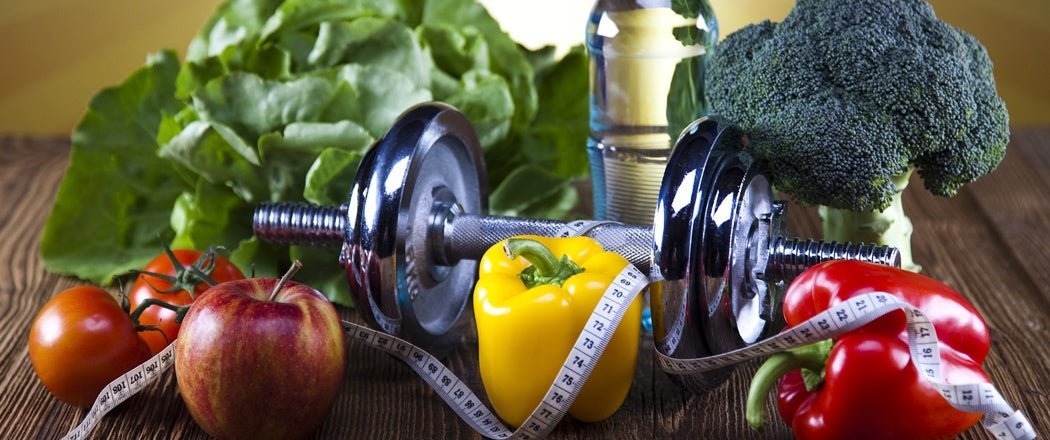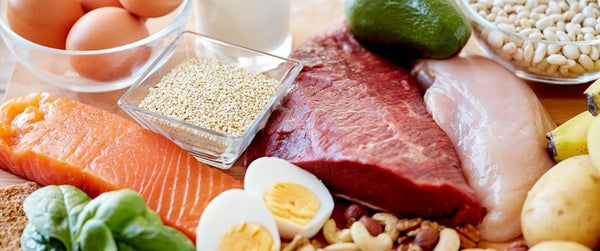
What is the Keto diet?
We have quite a few different communities that actively use our product towards their health and/or fitness goals, one of them that we see quite a lot of is those that follow a Keto diet. Anyone who isn't in the know might be scratching their head and wondering, "so what the hell is a Keto diet??" I've put together a short summary for anyone who's interested in what the fuss is all about and the benefits of following this program.
What is the ketogenic (keto) diet?
Let's get one thing straight, the ketogenic diet is not intended to be a temporary diet for weight loss, while it works great for that it's more of a lifestyle change where you consistently and drastically reduce the amount of carbs you ingest. It not only makes you burn fat for energy (more on that below) but helps you become very aware of how rampant carbs are in this day and age.Why is it called ketogenic?
- The word ketogenic is made up of two words: keto- and -genic.
- “keto-” being short for ketones.
- And “-genic” is the same as genesis, which refers to “the creation of something”
- So the word ketogenic literally means the “creation of ketones.”
- Ketones are created from the break down of fat for energy when the body doesn’t get enough carbs.
- When the body is creating ketones, it is said to be in a state of 'ketosis' where fat becomes the main source of fuel for energy rather than sugar from carbohydrates (glycolysis).
So what are ketones anyway?
Ketones are like water-soluble fat molecules that can cross the blood-brain-barrier and provide energy for the brain. There is this myth where people say that you MUST eat carbs because the brain can only survive off carbs or glucose. What they don’t know (or conveniently forget to mention) is that the brain operates perfectly on ketones as well. Think of them as the 4th macronutrient after carbs, protein and fat.How is ketosis achieved?
Ketosis is achieved by practicing strict carbohydrate restriction consistently. The general limit is about 25-50grams of net carbs a day which is far lower than the typical 200-300grams most people ingest per day. (Net carbs are carbs minus fiber.) Those carbs must be replaced with healthy fat sources. It takes a few days for ketosis to actually occur because you have a glycogen supply to get through initially, but one can reach ketosis faster if they exercise.What are the benefits of being in ketosis?
The promises of a ketogenic diet are quite impressive actually:- Helpful for metabolic syndrome (obesity) and preventing diabetes. 3
- Increased meal satiety and appetite blunting. This diet is more satiating than a low-fat diet and tends to makes it easier to avoid caloric overconsumption. 1
- Greater rate of fat loss due to state of ketosis rather than glycolysis. 1
- Note: You literally become a fat-burning machine.
- Reduction or complete elimination of Type-2 Diabetes (Reduction in insulin resistance). 3
- Reduction or complete elimination of hypertension (high blood pressure). 2
-
Prevention of various cancers and reduction of cancer growths.
- The mitochondria of cancer cells are damaged and require 200x the normal amounts of glucose to replicate at rapid rates. They cannot utilize ketones and cannot survive in ketosis without the presence of excess glucose.
- Possible treatment for Alzheimers.
- Possible treatment for Parkinsons
- Improved memory for older adults
- Reduction or complete elimination of chronic systemic inflammation.
- A ketogenic diet has profoundly anti-inflammatory effects.
- Improved cardiovascular health
- Very high muscle-sparing effect. (Muscle loss is mitigated in ketosis even at a caloric deficit!). 2
- Proven treatment for epilepsy, more effective than current medications without the side effects.
Before I continue: The ketogenic diet is NOT a panacea
The truth is that there is not a single, perfect diet that works for everybody. Generally speaking, this diet is excellent for around ~70% of people out there, however ~30% of the population will not respond well to this diet.- Weight loss is NOT guaranteed on keto. You still need to be wary of your total intake of calories and counting your calories/macros is recommended until you figure out the diet. But after a lot of experience, many people find the keto diet to be liberating because they are able to maintain the diet without the need for calorie counting by consistently choosing only keto-friendly foods.
So… What are carbohydrates?
Carbs are sugar. Sugars are carbs. There are simple carbs (monosaccharides) and complex carbs (polysaccharides). There are also sugars found naturally in foods and extra sugars added artificially to foods. In the context of a ketogenic diet, they’re all pretty much the same because the body eventually breaks them down into their simplest forms regardless. The carbs that you will eat will come almost entirely from veggies or nuts on this diet. (if you're looking for some low carb snack ideas check out: https://lovepbco.com/22-easy-low-carb-snacks/)Don't we need carbs for energy?
- Despite your body needing to break down carbs first and foremost when they are ingested, carbs are NOT an essential nutrient. An essential nutrient is one your body needs to survive because it won’t be able to make it on its own. But your body readily creates sugar from fat and protein to regulate blood sugar levels.
- Many people think they need carbs to perform at their very best performance-wise, but that’s not true either. It takes a few weeks, but after someone becomes completely adapted to the ketogenic diet, they become very, very efficient at burning fats for fuel and the bandwidth or throughput within which your body can do this at is great. It’s been ingrained in us that we need carbs to survive, or perform at our peak as athletes. We see sugar as energy. We see athletes drink Gatorade, so we think we can’t perform at our best without it. Almost relying on it as a crutch. But when you’re keto-adapted you are not chained to the hypoglycemic rollercoaster.
Wondering what effect the low carb lifestyle will have on you? See our article on 11 things we learnt about the low carb lifestyle. And please remember that diets are an extremely complex subject. There is no perfect diet and it's not all about just doing something for weight loss. Diet is influenced by culture, religion, social influence, family, ethics... for some it's as simply as drinking soylent and nothing more. For some, they view it through a lens of biochemistry and physiology and geek out over metabolically hacking their body. It's all about finding out what works for you.1 https://authoritynutrition.com/10-benefits-of-low-carb-ketogenic-diets/ 2 http://www.bodybuilding.com/content/in-depth-look-at-ketogenic-diets-and-ketosis.html 3 https://www.ruled.me/the-ketogenic-diet-and-diabetes/#Please note that any nutritional advice on this website is not intended to be a substitute for professional medical advice, diagnosis, or treatment. Always seek the advice of your physician or nutritionist with any questions you may have regarding a medical condition or a dietary restriction. Never disregard professional medical advice or delay seeking it because of something you have read on our website.



